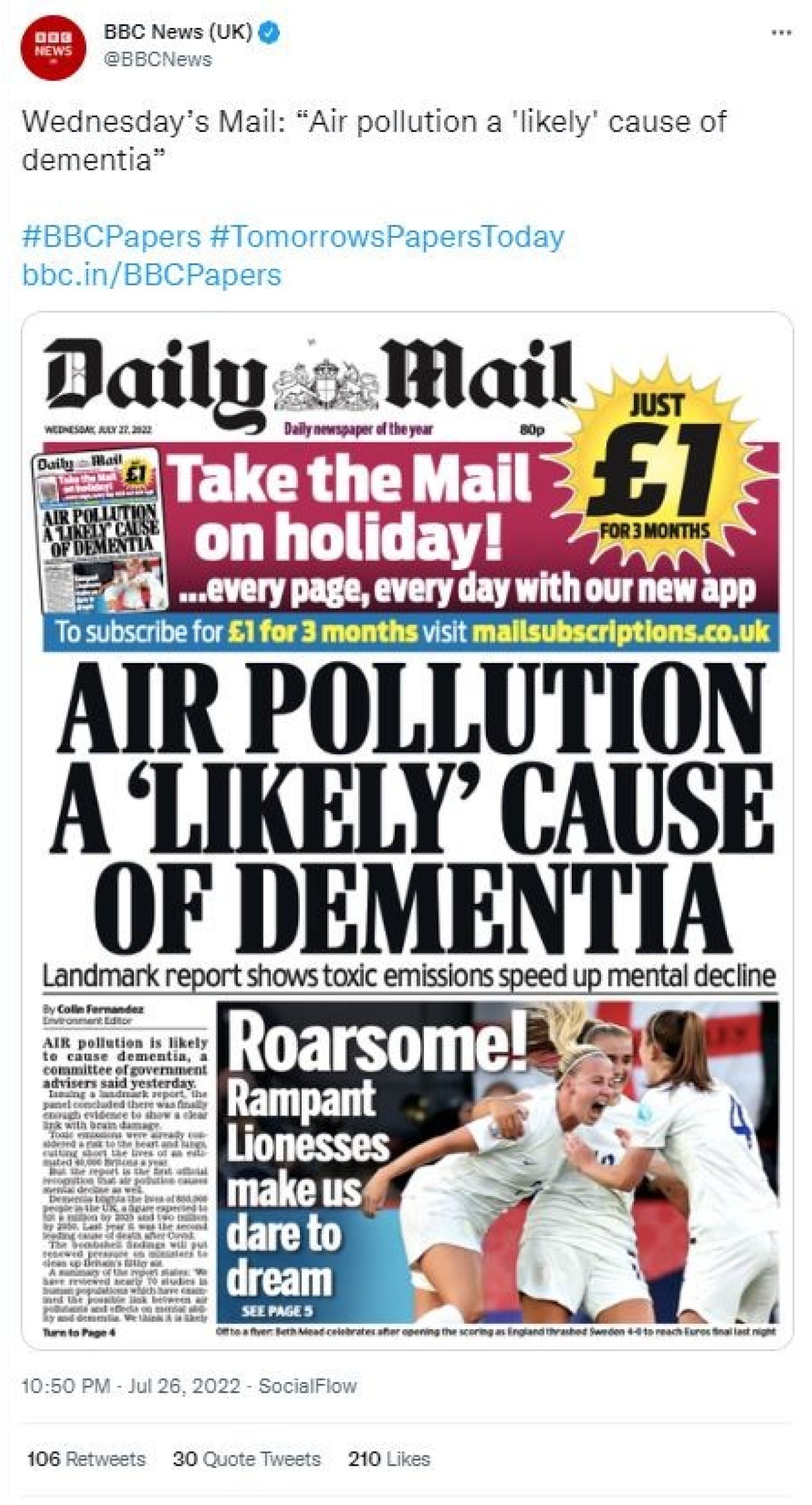Growing evidence supports the link between air pollution and dementia
by Ryan O'Hare

Imperial researchers contribute to a report highlighting how air pollution contributes to dementia and a decline in mental ability.
The independent review, published this week by the UK Health Security Agency (UKHSA) and involving input from experts across the College, analysed the latest available evidence into negative impacts on the brain linked to air pollution.
Reported widely by UK media, it highlights how evidence of the link has grown in recent decades, with the authors concluding ‘it is likely air pollution does contribute to dementia and cognitive impairments’.
Professor Frank Kelly, head of Imperial’s Environmental Research Group and lead author, said: "Dementia is one of the greatest, if not the greatest, global challenge for health and social care in the 21st century. The Committee on the Medical Effects of Air Pollutants (COMEAP) has reviewed a large number of studies and concluded that it is likely that air pollution contributes to a decline in mental ability and dementia in older people."
Reviewing the evidence
The report, published by the Committee on the Medical Effects of Air Pollutants (COMEAP), reviewed the findings of more than 70 studies covering possible links between air pollution and a decline in mental ability and dementia in older people, as well as how air pollution might affect the brain.
It finds the evidence base has grown substantially over the last 15 to 20 years, as the number of people living with dementia has grown to more than 900,000. The authors write: ‘Clearly, an understanding of the magnitude of the effect of air pollution on neurodegenerative conditions is critical….’

(Credit: BBC News / Daily Mail)
It highlights a ‘strong case’ for air pollution having a secondary effect on the brain, increasing the risk of cardiovascular and neurodegenerative disease.
It also details a potential direct mechanism, with small particles in the air (including PM2.5 from vehicle exhausts and other sources) entering into the bloodstream and crossing into the brain.
Dr Ian Mudway, Senior Lecturer in the School of Public Health, said: “The report calls for a much stronger focus on understanding the mechanisms by which air pollution contributes to increased dementia risk. Within Imperial we are already fortunate to be working actively with members of the UK Dementia Research Institute to address this question.”
The authors highlight that while it’s not currently possible to directly measure the impact or air pollution on cognitive decline or dementia, it may be possible to develop an indirect method to quantify the effects on the brain.
The findings will inform international air quality guidelines and policy on particulate matter targets.
Future work will see the researchers collaborate with the UK Dementia Research Institute to uncover the mechanisms by which air pollution increases dementia risk.
The full report is available on the Gov.uk website.
-
The Committee on the Medical Effects of Air Pollutants (COMEAP) provides independent advice to government departments and agencies on how air pollution impacts on health.
Its members come from a range of specialist fields such as air quality science, atmospheric chemistry, toxicology, physiology, epidemiology, statistics, paediatrics and cardiology.
COMEAP includes a range of Imperial expertise, including from the School of Public Health and National Heart & Lung Institute.
Article text (excluding photos or graphics) © Imperial College London.
Photos and graphics subject to third party copyright used with permission or © Imperial College London.
Reporter
Ryan O'Hare
Communications Division